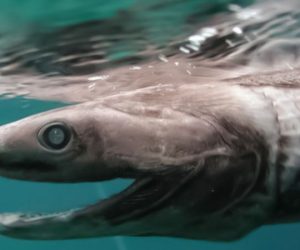Jane Goodall is a world-renowned primatologist, conservationist, and animal rights activist who devoted her life to studying chimpanzees in their natural habitat. During the 45 years, she spent in Africa in the Gombe Stream National Park, Tanzania she observed primates closely and made many important discoveries regarding their behaviour. Nobody before has observed that chimpanzees eat meat and use tools.
Jane won numerous awards for her work, such as the J. Paul Getty Award for Conservation, Living Legacy Award, Disney’s Eco-Hero Award, the Benjamin Franklin Medal in Life Science, and in 2002, she was given the United Nations Messengers of Peace title by Kofi Annan.
In 1977 she established the Jane Goodall Institute, which today has as many as 19 branches worldwide, focusing on international wildlife and environment, conservation, and development programs in Africa.
Jane Goodall’s led a truly inspiring and fascinating life with outstanding achievements. We have collected ten interesting facts to learn more about her.
1. Jubilee
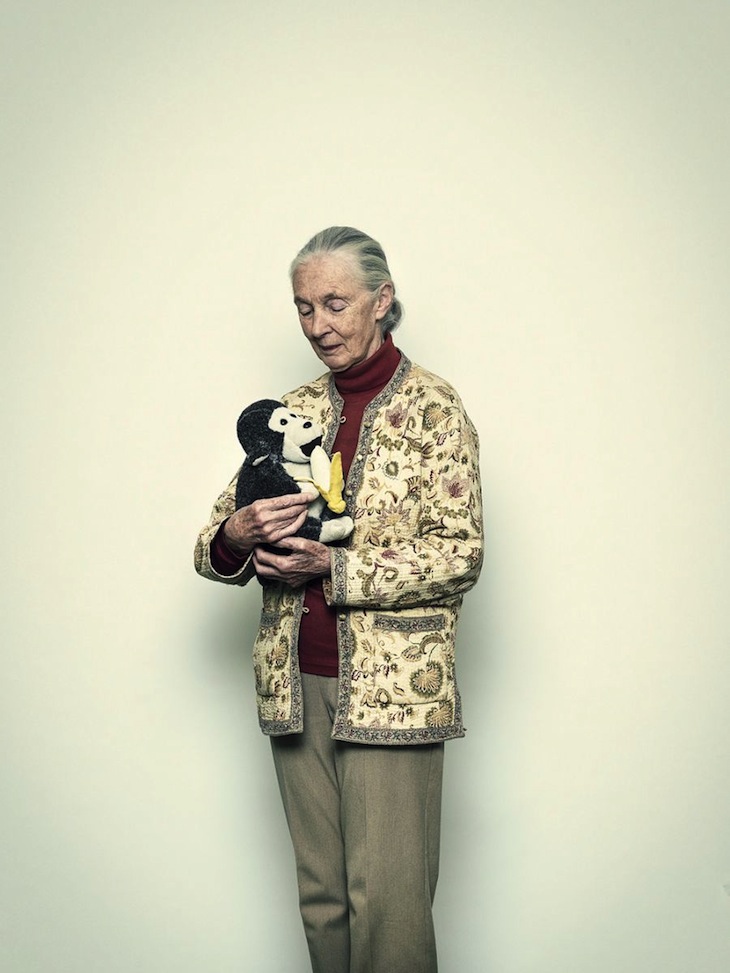
Jane Goodall was born in 1934 in London, England. She was fascinated by animals from her early childhood, spending a lot of time observing birds and animals. As a little girl, she received a gift from her father, a stuffed animal, a chimpanzee. She named it Jubilee, and even today, she keeps it on her dresser.
2. Inspiration
Jane dreamed of traveling to Africa to observe exotic animals in their natural habitats from an early age. She loved reading books, especially books about animals like The Story of Doctor Dolittle and The Tarzan Series. These stories inspired her to explore Africa and nature.
3. First trip to Africa
After finishing high school, she worked as a secretary and waitress to save up enough money to fulfil her dream of visiting Africa. In 1956 she got invited by a childhood friend to visit her and her farm in Kenya. Jane Goodall arrived in Africa in 1957. She met the famous archeologist and naturalist Louis Leakey, who hired her as secretary through other friends. Leakey was sure that through observing primates, important evolutionary information would come up as a result. He chooses three women to study the three great apes. Jane was the first, then shortly after Diane Fossey and Birute Galdikas.
4. Revolutionary Observations
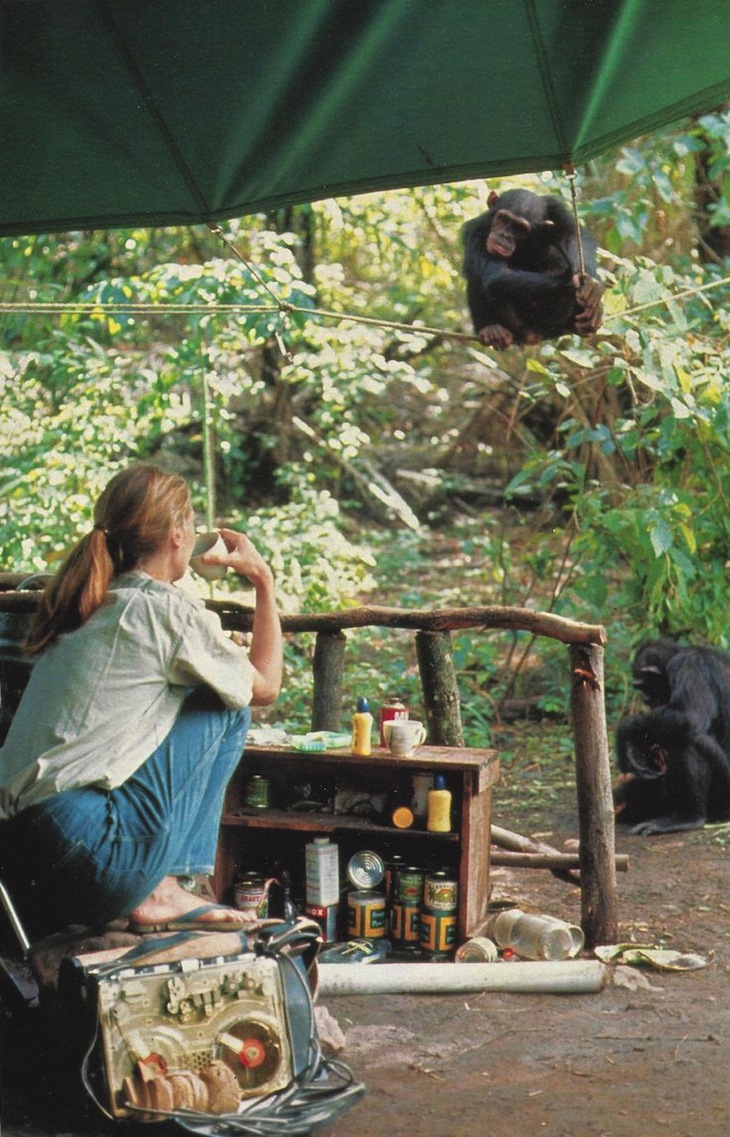
via vintagenatgeographic.tumblr.com
Jane arrived in Tanzania in 1960 and began studying chimpanzees. After several attempts and two years of continuous hard work, she had a great achievement, a group of chimpanzees let her as close as 30 feet to their feeding area and showed no fear anymore. She made several very important discoveries. One is that chimpanzees use previously thought tools to be an exclusively human habit, and she noted that chimpanzees it meat. Male chimpanzees sometimes hunt in groups to kill and eat other mammals, such as bush pigs, antelope, and birds. She also discovered that chimps live in a social system, have different personalities, and communicate through over twenty different sounds.
5. University
When Jane Goodall enrolled at Cambridge University in 1962, she was among the first few to receive a doctorate without a bachelor’s or master’s. In 1965 when she got a Ph.D. in Ethology.
6. National Geographic
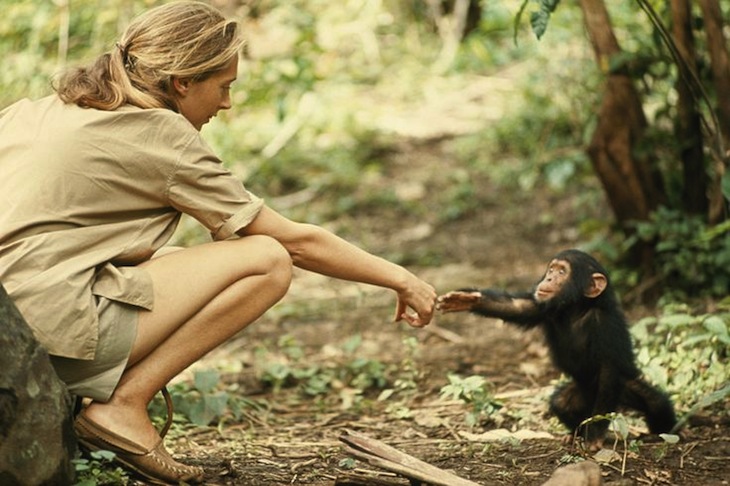
via www.boston.com
The world learned about Jane Goodall, chimpanzees’ behaviour when a National Geographic Photographer, the Dutch Baron Hugo van Lawick was sent to film Goodall at work in 1962. His film was first broadcast on American television in 1965. The assignment lasted longer than anticipated, Goodall and van Lawick got married in 1964.
7. Naming Animals
Jane Goodall was the first scientist to give names to her research subjects – the chimpanzees – rather than assigning them numbers. In the conventional studies, the reason for not giving names to research subjects was to avoid emotional attachment to them. Jane developed a strong mutual bond with chimpanzees, and thus she became, the only human ever accepted into chimpanzee society.
8. Jane Goodall Institute
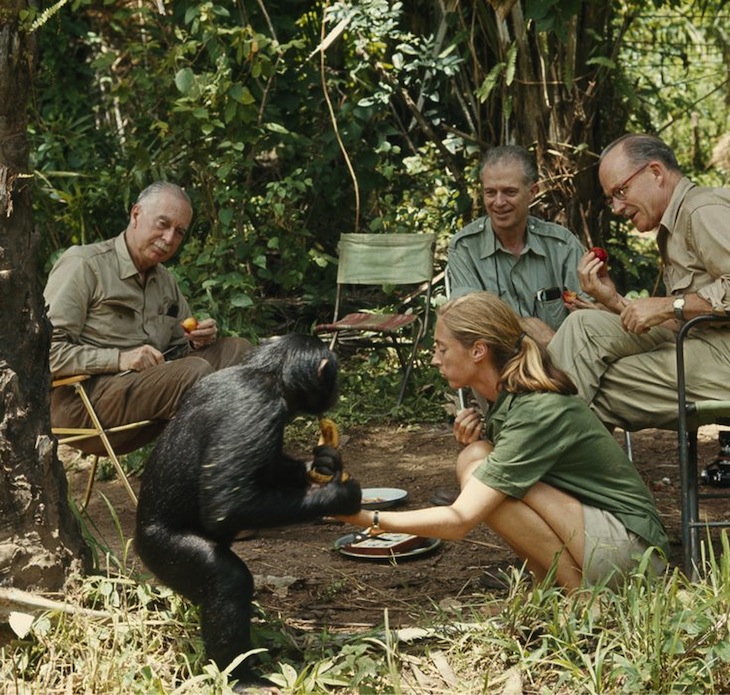
via shop.nationalgeographic.com
In 1977 she established the Jane Goodall Institute, which today is a global non-profit organization with as many as 19 branches around the world focusing on international wildlife and environment, conservation, and development programs in Africa.
9. Books
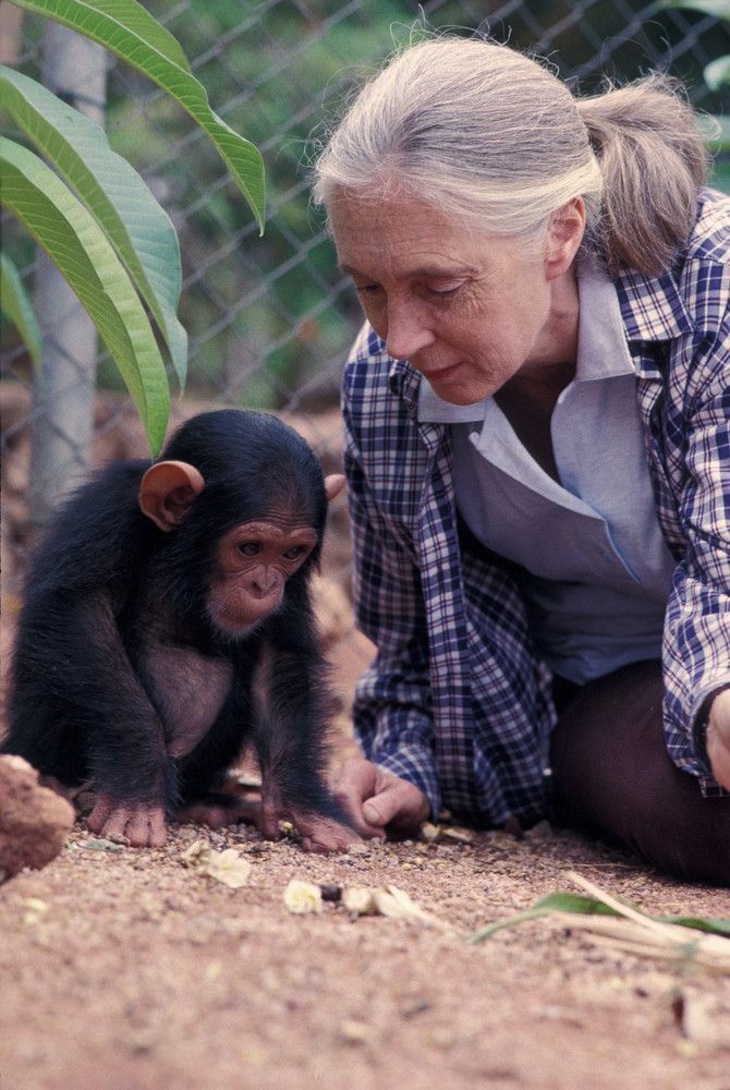
Goodall wrote numerous books and children’s books also. Through her stories, the chimpanzees she studied became internationally known by their names. Some of her most popular books are In the Shadow of a Man, The Chimpanzees of Gombe, 40 Years at Gombe, and Through a Window.
10. Legacy
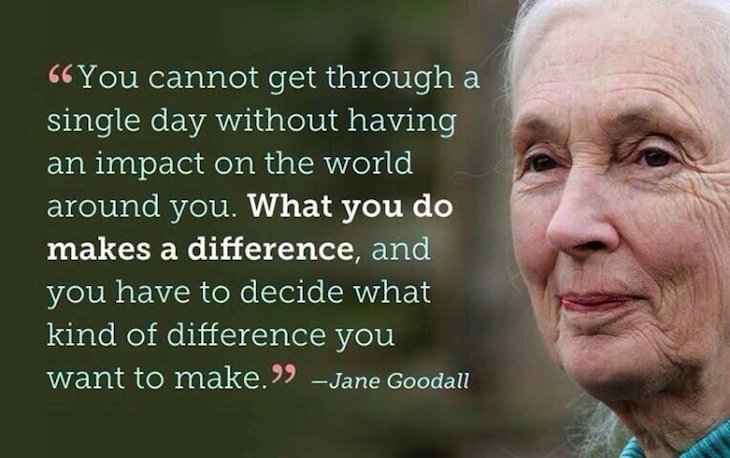
via plasticbank.org
Her scientific work made a huge impact worldwide, not only in the fields of ethology and conservation. Jane won numerous awards for her work, such as the J. Paul Getty Award for Conservation, Living Legacy Award, Disney’s Eco-Hero Award, the Benjamin Franklin Medal in Life Science. In 2002 she was given the United Nations Messengers of Peace title by Kofi Annan and the title Dame of the British Empire by Queen Elizabeth II of England in 2003.

